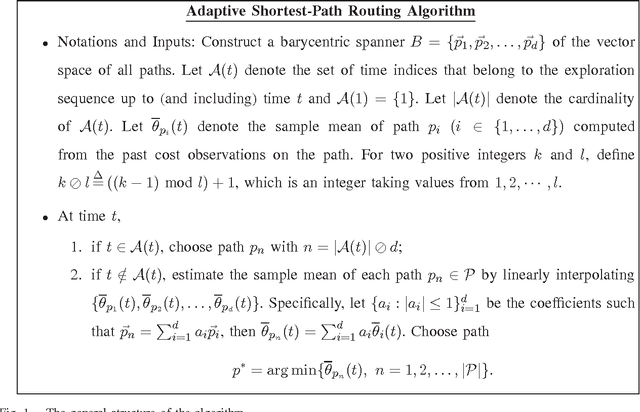Adaptive Shortest-Path Routing under Unknown and Stochastically Varying Link States
Paper and Code
Jan 24, 2012
We consider the adaptive shortest-path routing problem in wireless networks under unknown and stochastically varying link states. In this problem, we aim to optimize the quality of communication between a source and a destination through adaptive path selection. Due to the randomness and uncertainties in the network dynamics, the quality of each link varies over time according to a stochastic process with unknown distributions. After a path is selected for communication, the aggregated quality of all links on this path (e.g., total path delay) is observed. The quality of each individual link is not observable. We formulate this problem as a multi-armed bandit with dependent arms. We show that by exploiting arm dependencies, a regret polynomial with network size can be achieved while maintaining the optimal logarithmic order with time. This is in sharp contrast with the exponential regret order with network size offered by a direct application of the classic MAB policies that ignore arm dependencies. Furthermore, our results are obtained under a general model of link-quality distributions (including heavy-tailed distributions) and find applications in cognitive radio and ad hoc networks with unknown and dynamic communication environments.
 Add to Chrome
Add to Chrome Add to Firefox
Add to Firefox Add to Edge
Add to Edge